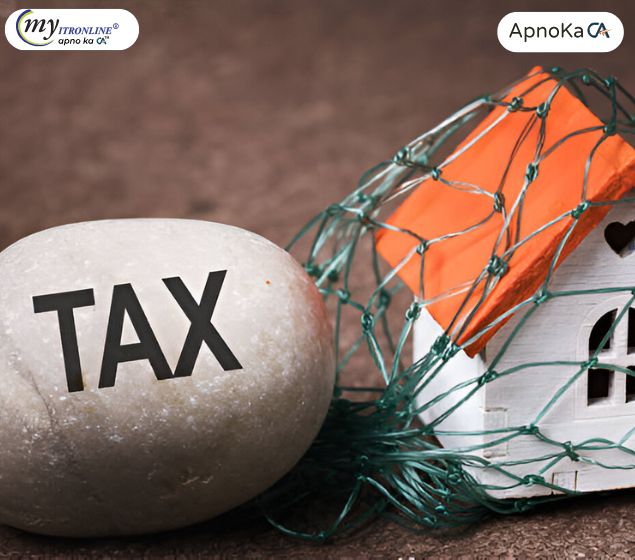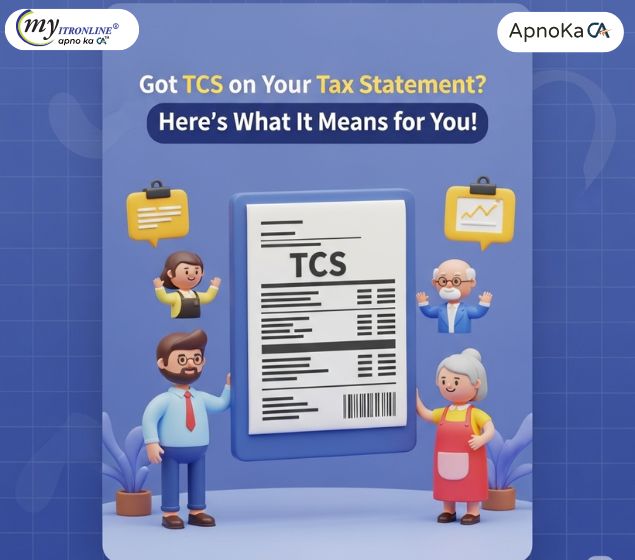# financialplanning
12 posts in `financialplanning` tag
.jpg)
New Tax Regime for ITR-1 Filers: Everything You Need to Know for AY 2025-26
The New Tax Regime is now default for FY 2024-25. Our comprehensive guide helps salaried individuals and pensioners file ITR-1 (Sahaj) easily, covering eligibility, new deductions like the ₹75,000 standard deduction, and a step-by-step online process. File by September 15, 2025!
.jpg)
New Gratuity Norms 2025: What Indian Employees Must Know
This blog post offers a detailed look at gratuity in India for 2025. It defines gratuity and outlines the different situations in which it is payable, including superannuation, resignation, death, or disablement. The post explains the eligibility criteria, highlighting the five-year continuous service rule and its main exceptions. It also provides clear formulas and examples for calculating gratuity for both employers covered and not covered by the Payment of Gratuity Act, 1972. A significant portion covers the tax implications for 2025 under Section 10(10) of the Income Tax Act. This section differentiates between government and non-government employees, explains the 20 Lakh exemption limit, and addresses the effect of the new tax regime (Section 115BAC) on gratuity exemptions. The article concludes with key takeaways for better financial planning.
.jpg)
The Cost of Delaying TDS: Understanding Section 201(1A) Interest and Penalties
This blog post provides a comprehensive overview of Section 201(1A) of the Income Tax Act, 1961, focusing on the interest levied for delayed TDS deduction or payment. It explains the two distinct scenarios for interest calculation (1% for failure to deduct, 1.5% for failure to pay after deduction), clarifies the "month or part of a month" rule, and illustrates calculations with clear examples. Furthermore, it details the severe implications for defaulting deductors, including "assessee in default" status, disallowance of expenditure under Section 40(a)(ia), various penalties (271C, 271H), and potential prosecution. The post concludes with practical best practices to help deductors ensure timely compliance and avoid these costly repercussions.
.jpg)
ITR-2 & ITR-3 Excel Utilities Are LIVE! Your Essential Guide to Filing for AY 2025-26
This blog post announces the release of ITR-2 and ITR-3 Excel utilities for AY 2025-26. It explains which taxpayers must use these forms and highlights important updates from the Finance Act, 2024. These updates include changes to capital gains segregation, share buyback rules, and higher asset reporting thresholds. The post describes the benefits of using Excel utilities and offers a clear, step-by-step guide for filing. It stresses key points like the e-verification deadline and the need for accuracy and good record-keeping to ensure smooth compliance.
.jpg)
Taxpayer Alert! Decoding Income Tax Department's New Rules for FY 2025-26
The Income Tax Department is making significant updates and tightening compliance for FY 2025-26 (AY 2026-27). This blog post serves as an important "taxpayer alert." It explains key changes, such as the mandatory Aadhaar-based verification for updates to the e-filing portal and PAN applications. There is also a stronger emphasis on computer-assisted scrutiny (CASS) for certain types of returns, including survey/search cases, ITR-7 filers, recurring additions, and intelligence alerts. Additionally, it provides information on expected delays in ITR refunds due to outstanding demands and technical upgrades. The focus on HRA claims will tighten, especially those that involve family members. It highlights the need for proactive compliance, careful record-keeping, and timely responses to avoid penalties and ensure a smooth tax experience.

Claiming 80E: Education Loan Interest Tax Deduction Guide
This comprehensive blog post demystifies Section 80E of the Indian Income Tax Act, which allows individuals to claim deductions on the interest paid on education loans. It details who can claim, eligible loans, the eight-year deduction window, and the crucial distinction between principal and interest. The post emphasizes the importance of accurate documentation, such as annual interest certificates, and provides actionable strategies to match figures with lender data and navigate ITR forms correctly, thereby avoiding common pitfalls that lead to tax scrutiny. Ultimately, it equips taxpayers with the knowledge to maximize their Section 80E benefits confidently.

Income Tax in India: Are You Prepared for July 2025?
This blog post provides a comprehensive overview of the significant income tax changes coming into effect in India from July 1, 2025. It details the more attractive new tax regime with revised slabs and increased deductions, the extended ITR filing deadline, the mandate for Aadhaar in PAN applications, and the real-time PAN-bank linking system. Furthermore, it touches upon the updated ITR forms and the broader proposals of the Income Tax Bill 2025, offering taxpayers crucial insights for compliance and effective tax planning.

Easy Guide: Selling Your House? How to Save Tax with Section 54!
This blog provides a simple guide to Income Tax Section 54, explaining how individuals and HUFs can save tax on long-term capital gains from selling a residential house by reinvesting in a new one. It covers the core conditions, timelines, and the use of the Capital Gains Account Scheme. The main focus is on the crucial update allowing exemption for investing in two houses (if capital gain is up to ₹2 Crore), emphasizing that this benefit can be used only once in a lifetime. The post highlights common pitfalls and advises on documentation and expert consultation.

Easy Guide: Selling Your House? How to Save Tax with Section 54!
This blog provides a simple guide to Income Tax Section 54, explaining how individuals and HUFs can save tax on long-term capital gains from selling a residential house by reinvesting in a new one. It covers the core conditions, timelines, and the use of the Capital Gains Account Scheme. The main focus is on the crucial update allowing exemption for investing in two houses (if capital gain is up to ₹2 Crore), emphasizing that this benefit can be used only once in a lifetime. The post highlights common pitfalls and advises on documentation and expert consultation.

Easy Guide: Selling Your House? How to Save Tax with Section 54!
This blog provides a simple guide to Income Tax Section 54, explaining how individuals and HUFs can save tax on long-term capital gains from selling a residential house by reinvesting in a new one. It covers the core conditions, timelines, and the use of the Capital Gains Account Scheme. The main focus is on the crucial update allowing exemption for investing in two houses (if capital gain is up to ₹2 Crore), emphasizing that this benefit can be used only once in a lifetime. The post highlights common pitfalls and advises on documentation and expert consultation.

Unlocking HRA Exemption: Yes, You Can Claim HRA While Staying With Your Parents in India!
Did you know you can claim HRA exemption even when you live with your parents? It's a common misconception that costs many taxpayers valuable savings. Our detailed blog post breaks down exactly how to do it legally: from ensuring genuine rent payments and formal agreements to understanding your parents' tax implications. Learn the crucial conditions and required documents to unlock this significant tax benefit. Simplify your HRA claim with expert guidance from myitronline.

Got TCS on Your Tax Statement? Here's What It Means for You!
This blog demystifies Tax Collected at Source (TCS) for taxpayers, especially for Financial Year 2024-25 (Assessment Year 2025-26). It explains what TCS is, lists common transactions where it applies (like motor vehicle sales, overseas tour packages, and foreign remittances under LRS), and details how TCS affects one's tax liability. The post guides readers on how to reconcile TCS entries using their AIS/TIS and claim the correct credit when filing their Income Tax Return, helping them ensure accurate tax compliance and avoid discrepancies.
